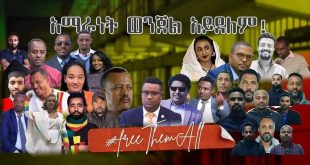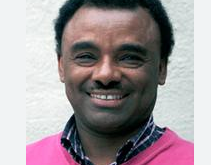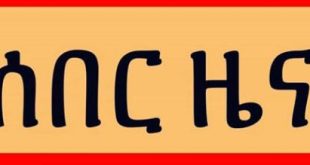Worldwide coalition of Ethiopians for justice and reconciliation
written By Dr. Fekadu Shewarega, University of Duisburg, Germany
Some quick thoughts as starting point for discussion
- Introduction
The basic idea is that we should form one worldwide umbrella group around clearly defined specific activities. The name of the coalition above in the title is just a suggestion. We can call it a forum, or anything you prefer.
As we all know, different people may have different political positions, political priorities or perspectives. For example, some have enduring attachment to certain political groups. Others attach more significance to larger picture issues such as the type of federal structure, the composition and leadership of the current government, policies on specific areas, etc. For such policy preferences and persuasions (‘retail politics’) to be realized, however, the country must first exist. The survival of the country is an all-encompassing issue superseding any difference in political positions. The goal of this coalition should be to offer a platform for all Ethiopians to work collaboratively around goals that stand above politics without anybody abandoning or changing any long espoused views.
The efforts and sacrifices of many Ethiopians over the last decades clearly helped accelerate the downfall of the dictatorial regime. However, not only that the underlying structural problems persist to this day, but have now become even more complex – so much so that we are already witnessing a low intensity genocide (what a terrible word!). If anybody has any doubts that we are already there, a quote from Kofi Annan’s Nobel Peace Prize acceptance speech for clarification:
“A genocide begins with the killing of one man – not for what he has done, but because of who he is.”
All the indications are that an even more freighting dark cloud is gathering around the horizon. We cannot tell whether our collective best efforts will change this dynamic, but doing nothing is not an option. Doing things in the traditional way, which we know has not yielded satisfactory and enduring results, is not an option either. I just want to use the following quote from A. Einstein to illustrate my point (forgive if I come across as “know-it-all”):
“The definition of insanity is doing the same thing over and over again, but expecting different results.”
In other words, if we want different results than what we are getting now, then we must try a different approach. The situation right now on the ground is so grave that it demands immediate, sustained and ‘all hands on deck’ approach.
The obvious question now is where do we start from. I am convinced that this small group can work wonders if it can act as an initiator of a worldwide movement of Ethiopians organized around specific actions. This has the potential to release the collective pent-up energy of worried Ethiopians all around the world.
The next question is which specific activities are best suited to produce positive results, however little these may be. Nobody alone has the answers, but we will find out if we discuss, deliberate in a structured, focused, target-oriented way. The successful accomplishment of the first step will lay the groundwork for the next step, and we will learn from any missteps or digressions along the way.
In summary, the objective is – without political and other differences getting in the way – to design specific activities that can contribute in a small way towards stopping this vortex of downward spiral by focusing on what unites us, namely the love of our country and our basic humanity.
Regarding immediate focus areas of the coalition, I propose the following (these are just random ideas, certainly not cast in stone):
- First and foremost, sorting out appropriate organizational structure
- Justice
- Reconciliation and peace-building
Let me repeat: These are just spontaneous, off-the-cuff thoughts. Once we get down to the specifics, we can change, expand some, add new ones, etc. However, the most important thing is that we formulate specific goals. We can test our ideas vis-à-vis the SMART criteria from management (just as an example).
SMART (Specific; Measurable; Attainable; Relevant; Time-bound).
| Specific: | Precise and unambiguous in terms of outcome (what is going to be done? who is going to do what? how is he/she going to do it?) |
| Measurable: | The result must be measurable in terms of what we have achieved and where we failed |
| Attainable: | Realistic (the goal must be realistically achievable) |
| Relevant: | Relevant for achieving the intended long-term, broader goals |
| Time-Bound: | Likely to be achieved within a specified timeframe |
Let me now try to briefly outline the three focus areas I mentioned above.
- Organizational structure
There is no doubt that countless Ethiopians around the globe espouse the goals we want to promote, and watch with apprehension the dangers our country is facing, which we want to forestall. In terms of the basic goal, I think, we are preaching to the already converted. Where we come short as a society is the lack of capacity to work collaboratively in such a way that the individual efforts complement one another and produce a synergetic effect.
We should try to overcome this perennial problem by using specific tasks as organizing principles to attract a broad membership base.
- Membership and membership fee
We can quickly design an appropriate organizational structure with the help of professionals. We can have a mixture of individual and institutional membership. Some long-established associations, which have additional functions outside the objectives of this group, can retain their organizational structure and contribute to this activity collectively or individually.
If this organization is to achieve its goals, it needs a stable and plannable resource, and for impactful set of activities, we need membership in the tens of thousands with the corresponding monthly revenue stream. If we manage to pull it off in the current atmosphere where many people are focused on the issue, this should be a realistic goal.
Activity 1: Design an appropriate organizational structure, publicize the objectives, and attract membership
- Establishing a community of experts in specific areas
Decentralized efforts produce positive synergy only if they are coordinated. As we know from our own experience that the combined results of patchwork and scattershot activities is far less than the sum of the individual results. Additionally, all activities must be designed with a clear strategic vision undergirded by knowledge. We have a huge reservoir of expertise, and we must only find a way to tap this resource for the common good. Just to illustrate my point, we can, for example, setup ‘public relations group’, ‘inter-communal peace-building group’, ‘campaign against hate speech in the cyber space group’, ‘youth empowerment and entrepreneurship group’, etc., identify a suitable leader of each group. The group leader would then recruit and assemble a sub-group consisting of experts in each respective area.
Next, all activities should take place coordinated from a central location on the same platform. The technology for such organizational structure is cheap and easily affordable. Today even big corporations are conducting their operations this way at least partially. As an example, there is an open-source learning management platform called Moodle. On Moodle , each activity will get its space, and the leader (moderator) of each group can create different hierarchy of users, control which contents should be accessible to whom, setup chat fora, quickly arrange a video conference using the in-built tool BigBlueButton and make the recording of the session available for others to watch, all on the same platform. Members can work on the same document from any number of locations collaboratively. All activities are coordinated and managed from one central location with the contributors working from their individual locations. In the long term, this activity can grow to a level of a think tank for producing policy documents and advising the government on specific areas, in addition to educating the public and guiding our activities based on knowledge and expertise.
Activity 2: Establish advisory groups of experts
- Justice
If past experiences are anything to go by, the next round of atrocity is going to be even more vicious than the last. The only unknown at this point is when exactly it is going to happen and what will be the triggering event (a real or staged event). Therefore, we cannot just wait idly for it to occur and then respond with helpless outrage and anguish. The single most important preventive action today is atonement for the recent bout of violence. We should not let anybody get away with relativizing the atrocity (such as ‘but more Oromos were killed than Amharas’) or contextualizing it (such as ‘but the grief made the youth too emotional’).
- Justice for the victims of the current atrocity
If the perpetrators of this round of atrocity face the full force of the law then there is some hope for the future. Anything less is a clear indication of the lack of commitment on the part of the government (at least at the regional level).
We should forcefully demand restorative justice for the victims. Destroyed livelihoods must be replaced, the emotional trauma und the mental scar must be redressed. From all we hear, the victims are abandoned and alone with nobody to speak for them. We have a moral obligation to show to these victims that there are compatriots around the world, who care about their plight, feel their pain. This activity requires immediate response to contact the victims, collect evidence, build a criminal case against the perpetrators. One of the first activity must be to recruit a lawyer who would document the crimes and oversee and report how the legal process is evolving.
If we see the government addressing the issue to our satisfaction, we can scale back this activity or abandon it altogether.
Activity 3: Organize legal assistance for the victims get their rights
- Preventive justice
It is clear that the last round of violence (and the others before) in Ethiopia were organized methodically over a period of time. The chain of command may be secret, but the preparation and the incitement were happening in full view of the world. There must be a way to stop this incitement using the social media platforms, which at some point has the potential to trigger the first major genocide of the 21st century. Preventive activities ranging from simple complaint to the platforms to sustained legal, medial, and other activities should be considered.
Please follow the following link to read what I have in mind.
https://www.bbc.com/amharic/news-53473459
Regarding this, the only outstanding issue on our part is providing our support where we can and more importantly coordinating this activity as part of a larger world-spanning collective effort.
Activity 4: Take proactive measures to counter incitement to violence
- Reconciliation and peace-building
In connection with the current atrocities, people often ask how can a human being be capable of doing this to another human being. Framing the question this way misses the fact that the seeds of this depravity were intentionally sowed in the formative years of these young people and that they now see things from a totally different frame of reference. They were raised to see only the ethnic stereotype in front of them, and not the human being, who is made of blood and flesh just like themselves. Raising two generations with this type of mindset clearly was the handiwork of most ill-intentioned people, and it turned out to be quite an achievement.
Some might think that this orgy of senseless killing will stop at the gates of any particular ethnicity. But it does not work that way once people acquire the mental capability to kill for reasons they themselves specify. The only thing that will change is what pejorative attribute the new victims will get. The derogatory terms for today’s victims is “neftegna”, tomorrow it will be something else but the modus operandi and the outcome will remain the same. The famous poem from the German protestant pastor Martin Niemöller in a Nazi concentration camp represents a timeless and succinct cautionary tale:
“First they came for the communists, and I did not speak out – because I was not a communist; Then they came for the socialists, and I did not speak out – because I was not a socialist; Then they came for the trade unionists, and I did not speak out – because I was not a trade unionist; Then they came for the Jews, and I did not speak out – because I was not a Jew; Then they came for me – and there was no one left to speak out for me. “
Diffusing the current political tension and creating an environment where differences can be resolved in a peaceful discourse requires a multi-layered, long drawn-out process. A series of activities at several levels involving many actors including the government are required. The following two activities come to my mind.
- Elders’ and religious leaders’ conference
I firmly believe that a big conference where religious and community leaders, prominent people from academia, culture, etc. deliberate on the current situation would help. It easy to point fingers at the depraved individuals directly responsible for the carnage. However, the more frightening issue is that what has just transpired is a manifestation of the collapse of societal norms and moral guardrails. Once the society sinks this deep, anything is possible. Amid all this, where is the collective outrage? I think it is time take stock of this situation on an open and frank forum.
If you think the idea is feasible we can discuss the details. For this conference to be relevant, it should happen quickly. We should find a way to mobilize resources and sponsor it. This conference could also serve as the launching pad for our other long-term activities. We could also use the media coverage to bring our idea to a larger audience, and it would lay the groundwork for follow-up home-based activities.
Activity 5: Organizing a conference of community elders, religious leaders and prominent people
- Network for youth outreach and peace activism
Just to reflect on the magnitude of the problem our country is facing at the moment, we are dealing with people capable of taking the life of another human being in such a bestial way simply because he/she hails from another ethnicity, and that in in 21st century. Imagine also that we have learned people, university professors (no less) living and working in the developed world preparing the blueprint for this carnage and busy working on its theoretical underpinnings. It is quite scary. I have no illusion that we will reach many of them in any civilized discourse, and running after them down the rabbit hole would not bring any results.
However, I am convinced that these vocal ethno-nationalist extremists represent only a tiny minority. The vast majority, I am sure, is watching in a stunned silence. The issue now in my opinion is to isolate this violent group and push them to the outer fringes. For this youth activism for dialogue and peace-building is of paramount importance. Because at the end of day, what is going to be transformational is what the people on the ground do for their future. Our purpose is to try to establish the structure and provide whatever resources we can. Initially, the network of peace activities across the universities can be established. We can sponsor platforms, symposia to debate how they would like the future Ethiopia to look like, and provided support and training material on activism to challenge ethnic narratives and stereotypes.
What we should also not forget is that the underlying cause of the current social destabilization is youth unemployment and lack of opportunity and perspective. Combined with activism, we should provide resource material on building youth entrepreneurial culture, practical tips for aspiring entrepreneurs, how to establish a network of business support, policy making to ease access for financing, etc. One of the groups in our community of experts can focus on this specific area
Activity 6: Network of youth peace activism and capacity-building on youth entrepreneurship
 Association of Ethiopians in Europe Stop Apartheid in Ethiopia ! የዘር ፖለቲካ ለማስወገድ እንታገል
Association of Ethiopians in Europe Stop Apartheid in Ethiopia ! የዘር ፖለቲካ ለማስወገድ እንታገል




